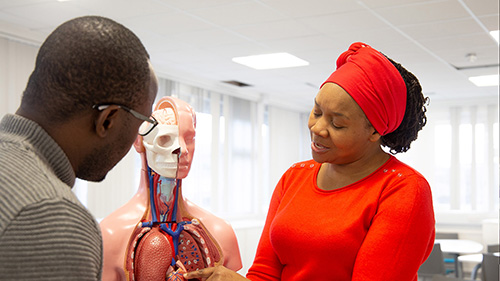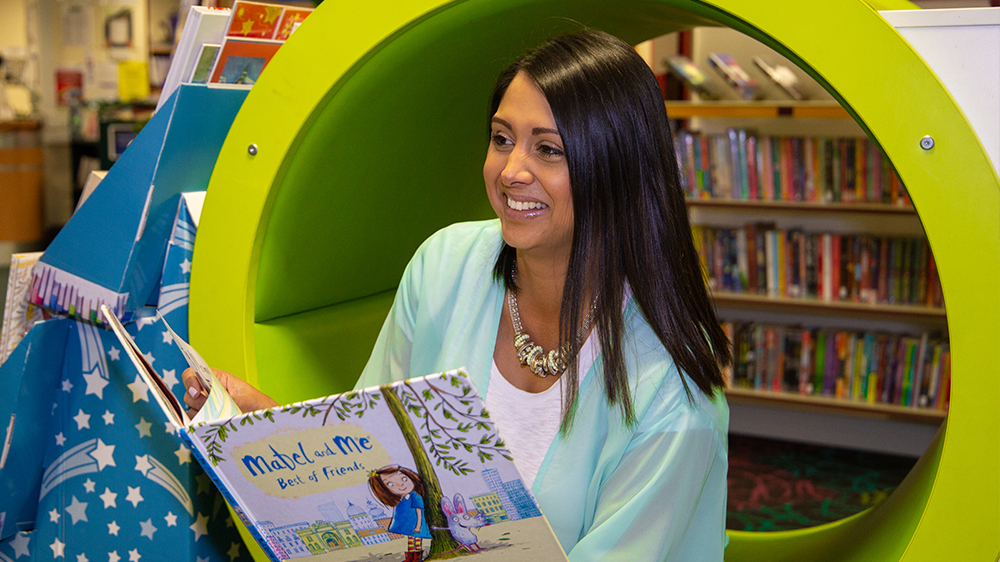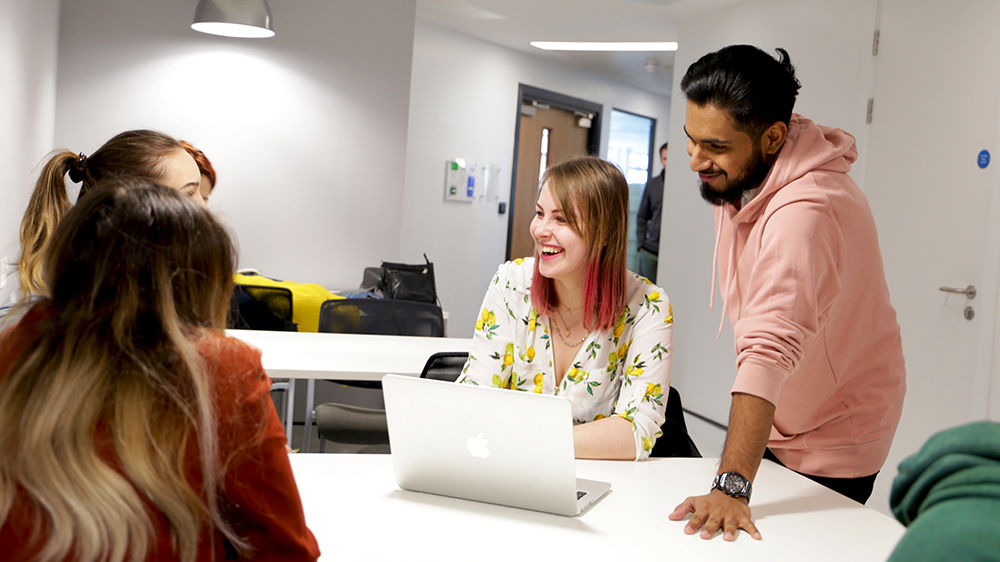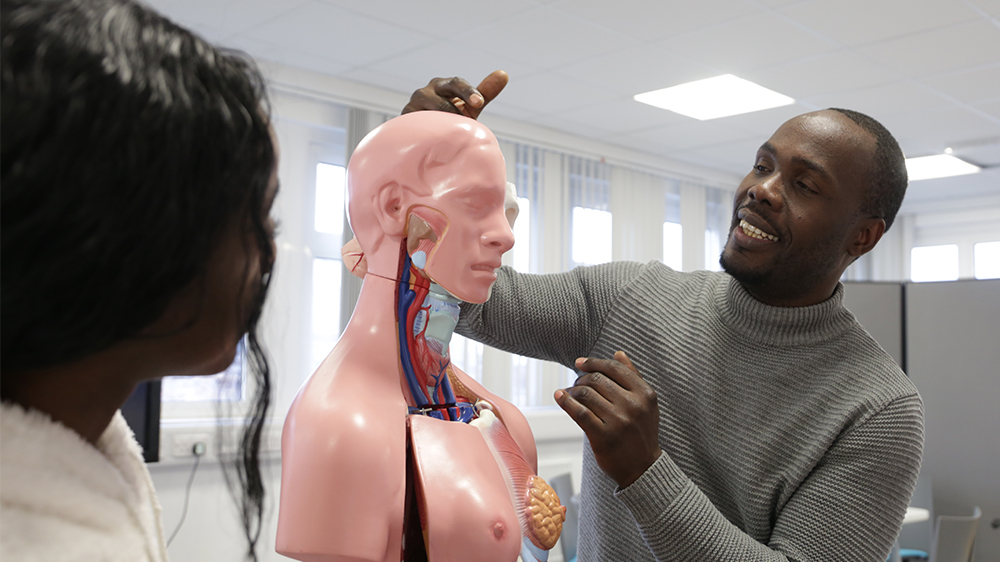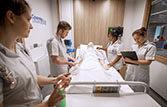Search
Health, Education and Wellbeing Foundation Year
Study level: Foundation year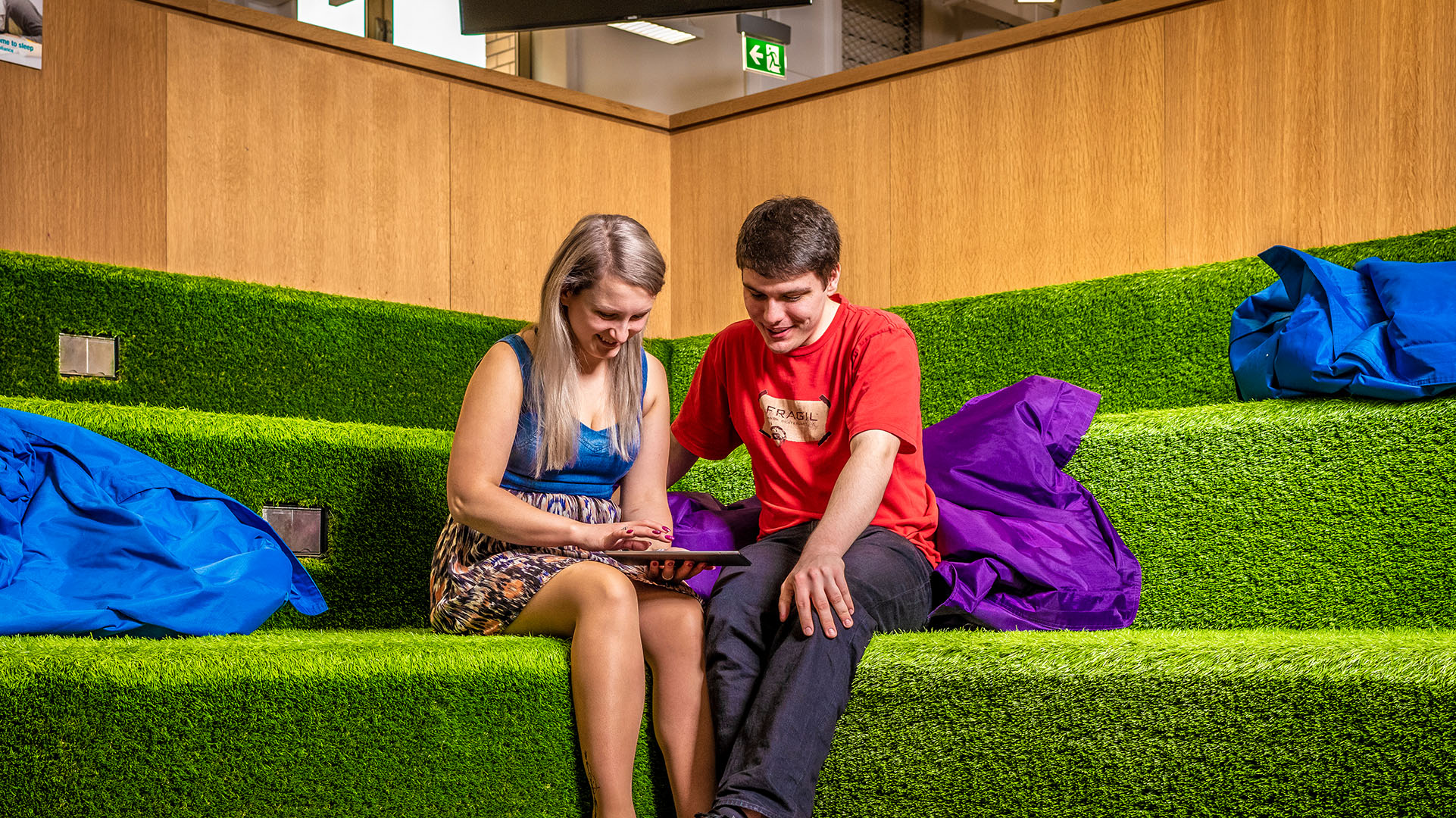
This foundation year course has been designed to prepare you for contemporary undergraduate courses related to health, education and wellbeing.
Course features
Year of entry
Location
CU Coventry (Coventry)
Study mode
Full-time
Duration
1 year full-time
Course code
L514
Start date
April 2024
June 2024
Course overview
Our Health, Education and Wellbeing Foundation Year course offers an introduction to topics for your chosen subject and is an ideal route to a degree-level qualification, helping you develop the necessary skills for further study in the fields of health, education, psychology or the wider social sciences.
Why you should study this course
This course focuses on core skills required for academic progression, alongside equipping you with the principles of foundation topics taught on many degree courses.
- Previous students have progressed onto degree programmes related to public health, nursing, social work, early years, education, psychology and criminology.
- We aim to fully prepare you to undertake a degree in a related area by teaching you key skills, such as research methods, scientific fundamentals and promotion techniques.
How can we help?
Chat with an advisor now or leave a message and we'll get back to you as soon as we can.
What you'll study
This course aims to provide the skills and knowledge relevant for progression onto a relevant degree programme. Throughout the course, you will gain an understanding of key concepts such as behavioural influences and effective health promotion techniques.
We regularly review our course content, to make it relevant and current for the benefit of our students. For these reasons, course modules may be updated.
How you'll learn
The foundation year programme is focused on applied learning geared to high-intensity teaching and study throughout the programme, requiring full commitment from students. The delivery of course content is a blend of lectures, tutorials and online mediums.
Unlike traditional institutions, there are no end-of-year exams. Instead, learning is assessed through coursework and phase tests, which are more reflective of a working environment.
Teaching contact hours
The number of full-time contact hours may vary from module to module, however, on average, it is likely to be around 20 contact hours per week. Additionally, you will be expected to undertake significant self-directed study of approximately 30 hours each week, depending on the demands of individual modules.
As an innovative and enterprising institution, the university may seek to utilise emerging technologies within the student experience. For all courses (whether on-campus, blended, or distance learning), the university may deliver certain contact hours and assessments via online technologies and methods.
Since COVID-19, we have delivered our courses in a variety of forms, in line with public authority guidance, decisions, or orders and we will continue to adapt our delivery as appropriate. Whether on campus or online, our key priority is staff and student safety.
Assessment
The learning outcomes of modules, assignments and projects will be clearly stated. Your work will be marked according to how well you achieve these learning outcomes and your final feedback will refer to each outcome, as well as providing an overall percentage grade.
Assessment methods vary and include practical class and project performance, written practical reports, project thesis, oral presentations, tutorial tasks and assessments.
Entry requirements
Typical offer for 2023/24 entry.
Fees and funding
2023/24 tuition fees.
| Student | Full-time | Part-time |
|---|---|---|
| UK | £7,950 per year | Not available |
| International | £16,800 per year | Not available |
For advice and guidance on tuition fees and student loans visit our Undergraduate Finance page and see the University’s Tuition Fee and Refund Terms and Conditions.
We offer a range of International scholarships to students all over the world. For more information, visit our International Scholarships page.
Tuition fees3 cover the cost of your teaching, assessments, facilities and support services. There may be additional costs not covered by this fee such as accommodation and living costs, recommended reading books, stationery, printing and re-assessments should you need them.
In order to receive funding for degree with foundation courses, you will need to complete a 4-year Degree programme which includes the integrated foundation year. If you study a standalone foundation year, you may be responsible for your foundation year fees. For further information refer to the 'Foundation Year Funding' section.
Facilities
All our facilities are located at Mile Lane. Our building has been designed to enable collaboration, creativity and innovation to flourish4, and includes:
- Indoor and outdoor social spaces, including a café.
- A library that includes loan laptops, over 115,000 eBooks and a silent study area.
- Open access IT suites and 83-inch teaching screens.
- Engineering lab, science lab and a moot courtroom.
- Student support and careers advice teams.
Careers and opportunities
On successful completion of this course, you will have the underpinning knowledge and academic skills to allow you to apply for a range of relevant degree courses.
How to apply
You may also like

Early Childhood Development and Learning BA (Hons)
